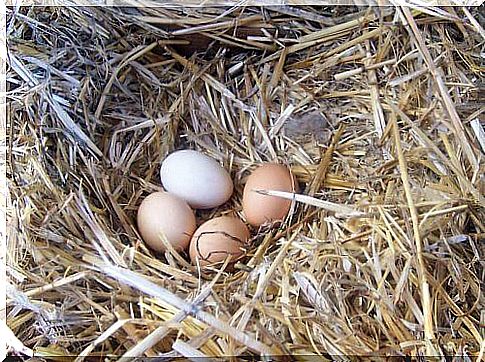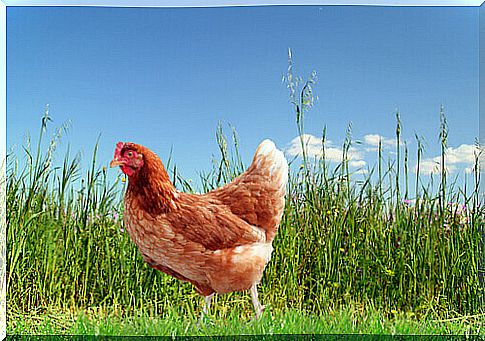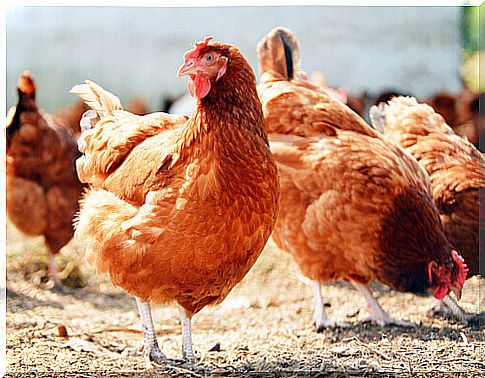How To Improve The Quality Of Chicken Eggs

When we talk about improving the quality of eggs, we are not only referring to a possible increase in benefits for agricultural producers, but also to the greater guarantee for all consumers. Without forgetting that only a healthy hen is able to lay excellent eggs.
In this article we will see a series of useful tips to ensure that, by protecting and raising your hens in the best possible way, you can achieve truly superior egg production .
Improve egg quality with healthier chickens
In order to analyze the quality of the eggs, it is necessary to study the result of the breeding and of the feeding provided, which is unequivocally reflected on the yolk, albumen and shell.

When a yolk is perfect
The quality of the yolk is revealed in the consistency, color and composition. The color of the yolk varies from pale yellow to intense orange. The hue depends on the assimilation of the lipid pigments that make up the diet of these birds.
Many manufacturers use specific synthetic substances or feeds to achieve the color preferred by consumers. It depends on each country, but usually a more intense color is associated with organic or naturally raised eggs .
The synthetic combination is usually composed of zeaxanthin, lutein and capsanthin in different proportions. These supplements can be supplemented by introducing corn or alfalfa into the chickens’ diet.
The consistency of the yolk mainly depends on the permeability of the vitelline membrane. Chicken nutrition usually does not directly affect this permeability. On the other hand, factors such as: the storage conditions, the age of the laying hen and the time from laying to consumption are influencing.
Speckles on the yolk
One of the most important aspects of the composition of the yolk is the presence of small spots. These tiny patches of blood form during ovulation and appear on the surface of the yolk and, once oxidized, take on a brown or whitish color.
The cause of this phenomenon is due to genetic factors, the age of the animal and the stress in its upbringing. Currently, it is believed that the presence of toxic substances in commercial feeds may increase the frequency of these black dots.
Quality of the egg white
The quality of the albumen (commonly called clear ) is mainly determined by its consistency. The most important factors are: the freshness of the eggs and the age of the hen that laid. Obviously, the type and ingredients used in the feed also affect, which must ensure a right amount of protein.
Meat meal or beans are protein sources that can favor a better consistency of the egg white, while, on the contrary, rapeseed and sunflower meal damage this characteristic. Some specific amino acids, such as lysine , also have a positive effect on the texture of the clear.
However, excess magnesium and other metals in the diet can affect egg quality. The same happens with vanadium contamination, which can be neutralized by controlled doses of ascorbic acid.
Shell quality
In relation to the shell, the only aspect that can be changed by feeding the hen is the thickness. Almost 95% of the egg shell is composed of calcium carbonate, a substance which, although it is derived from most of the animal’s bones, can also be favored by the type of diet.
That is why it is possible to give an extra dose of calcium in the feed for laying hens. It is recommended to accompany calcium with inorganic phosphorus to also promote bone regeneration of animals.
On the other hand, it should not be forgotten that the diet of your animals must necessarily contain vitamin D3, which is essential to ensure the calcification of the bones and improve the density of the shell.

Egg quality: care in management and preventive medicine
When we talk about preventive medicine, we are referring to the use of products solely with the aim of keeping the animal healthy and improving its productivity. In this sense, it is essential to respect periodic vaccination against postural deficiency syndrome, infectious bronchitis and Newcastle disease.
As far as animal management is concerned, the ideal is to eliminate any possible source of stress during breeding. To this end, we recommend that you:
- avoid sudden changes in habitat and lighting
- ensure adequate space, without excessive stocking density
- maintain regular schedules and frequencies for egg collection.
The link between production and market needs should not be underestimated . Today, there is a tendency to obtain eggs with privileged nutritional qualities: high intakes of omega 3, vitamins and folic acid. Regardless of purely materialistic arguments, however, we have seen how, in order to improve the quality of chicken eggs, we must first of all take care of the animal’s health. What is produced with calm, measure and respect for nature is the only thing that really benefits the human consumer.









